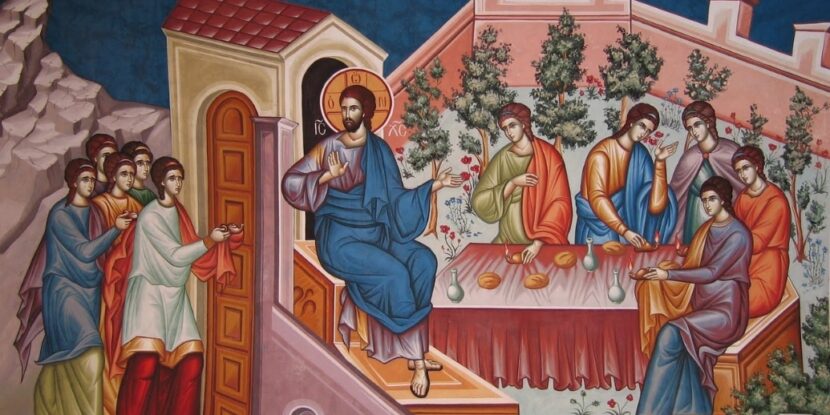On Holy Monday, we remembered a side of Jesus Christ often hidden by milquetoast modern Christians, as He drove the moneychangers from the Temple of Jerusalem with whip and hand and declared it a den of thieves.
On Holy Tuesday, He remains in fighting form, returning to the temple to face the chief priests and elders, who demanded to know by what authority He was acting.
Before arriving, He passed the fig tree he cursed on Holy Monday, to find it “withered from the roots.”
His disciples were amazed, and He used the opportunity to impart a lesson on the power of prayer: “Assuredly, I say to you, if you have faith and do not doubt, you will not only do what was done to the fig tree, but also if you say to this mountain, ‘Be removed and be cast into the sea,’ it will be done. And whatever things you ask in prayer, believing, you will receive.”
Theologians believe there may have been a deeper and darker meaning to the withering of the fig tree, however, with fig trees traditionally representing Israel, which was doomed to wither away not long after its leaders rejected Jesus as their Messiah.
WOE TO YOU, SCRIBES AND PHARISEES!
The Gospel of Matthew tells us that when Jesus reached the temple, where He had sowed so much chaos the previous day, its leaders were quick to confront Him.
“By what authority are You doing these things?” they demanded. “And who gave You this authority?”
St. Matthew describes a long debate, with Jesus chastising the elders for failing to recognize St. John the Baptist as a prophet, reciting three parables, and warning them the kingdom of God would be taken from them, “and given to a nation bearing the fruits of it.”
St. Matthew tells us they were so furious they would have seized Him, but dared not for fear of the crowds, who “took Him for a prophet.”
His debates with the temple leaders produced many of His most memorable sayings, including His injunctions to “Render unto Caesar the things that are Caesar’s, and unto God the things that are God’s,” and to “love thy neighbor as thyself.”
The debates concluded with a great denunciation of the temple leaders — men who loved their power and status more than they loved their faith.
“Woe to you, scribes and Pharisees, hypocrites! For you shut up the kingdom of heaven against men; for you neither go in yourselves, nor do you allow those who are entering to go in,” He declared.
“Woe unto you, scribes and Pharisees, hypocrites! for ye are like unto whited sepulchers, which indeed appear beautiful outward, but are within full of dead men’s bones, and of all uncleanness. Even so ye also outwardly appear righteous unto men, but within ye are full of hypocrisy and iniquity,” He continued.
“Serpents, brood of vipers! How can you escape the condemnation of hell?”
Today is Holy Tuesday, the third day of Holy Week, leading to Easter Sunday. Holy Week marks the final days of Jesus's life, and Tuesday's were among the most dramatic, seeing the chief priests and elders of the Temple of Jerusalem confronted and called out for their corruption. pic.twitter.com/3Pm8zMHpwQ
— Jack Montgomery (@JackBMontgomery) March 26, 2024
JESUS PREDICTS HIS DEATH.
Here Jesus predicted His fate, and the persecution of His disciples, saying He would send the priests “prophets, wise men, and scribes: some of them you will kill and crucify, and some of them you will scourge in your synagogues and persecute from city to city… Assuredly, I say to you, all these things will come upon this generation.”
“O Jerusalem, Jerusalem, the one who kills the prophets and stones those who are sent to her! How often I wanted to gather your children together, as a hen gathers her chicks under her wings, but you were not willing!” Jesus lamented.
Then, leaving, he warned His disciples of the temple’s coming destruction, telling them “not one stone” would be left upon another.
So it would come to pass, with the Romans destroying the temple in the years after Jesus’ death and resurrection. For now, however, the priests remained in their place of power — and they would take their revenge on Wednesday.


